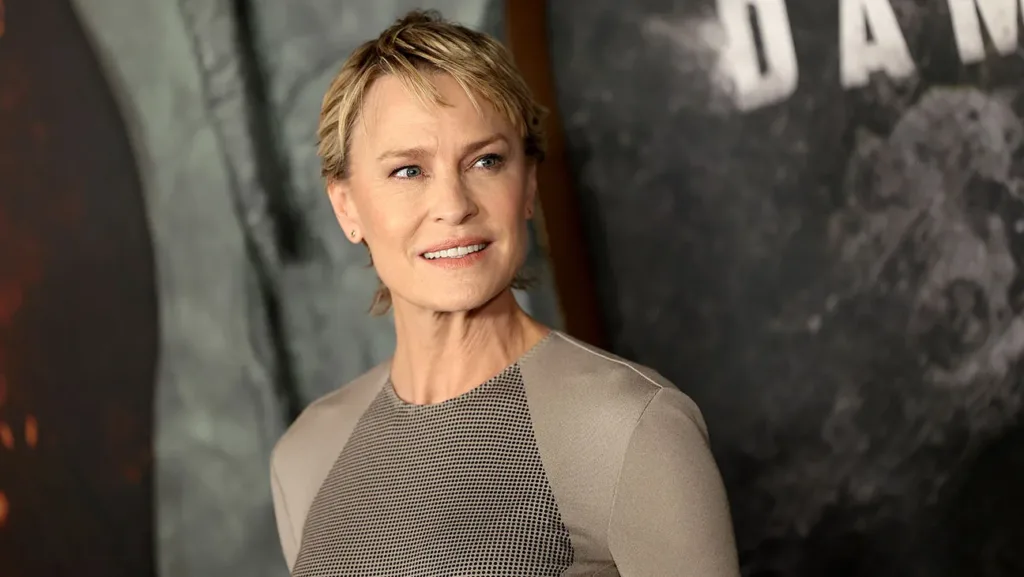Robin Wright used a Monte-Carlo Television Festival Q&A on Monday to warn that artificial intelligence threatens “people’s jobs” across film and television and to recall the resistance she met when seeking the same salary as House of Cards co-star Kevin Spacey. Asked whether digital doubles could replace actors, she answered that a computer “will never put emotion in the eyes,” insisting audiences respond to human presence rather than flawless pixels.
The Oscar nominee said the industry’s next disruption arrived years earlier for her—in the negotiation room. Executives told her equal pay required an Academy Award, offering instead to divide compensation across acting, directing, and producing credits so the numbers “looked even” on paper. She agreed, yet noted that such workarounds “keep the gap alive by changing the label, not the math”. Recent studies place the 2025 global gender wage shortfall at roughly one-fifth, underlining the persistence Wright described.
Her anxiety about AI is personal as well as philosophical. Robert Zemeckis’s Here relied on real-time generative software to age and de-age Wright and Tom Hanks across six decades, a process its creators hailed as a preview of streamlined future workflows.
Technical publications celebrated the achievement, but critics from The Guardian called the results “synthetic sentimentality,” highlighting a growing debate over whether fidelity can match feeling. Petapixel’s behind-the-scenes report shows how Metaphysic’s algorithms reshaped Wright’s face frame by frame, demonstrating the speed that worries performers’ unions still digesting 2023 contract language on digital replicas.
Festival organisers, who placed Wright on panels addressing both equality and technology, said her presence reflects the event’s aim to confront shifts in production head-on. The actor, preparing to star in and produce Prime Video’s thriller The Girlfriend later this year, told reporters she intends to keep lobbying for transparent pay scales while urging guilds to “codify what a human performance is before software does it for us”. Her remarks landed as Hollywood weighs whether AI tools can coexist with fair contracts—an argument likely to intensify long after festival lights dim.
